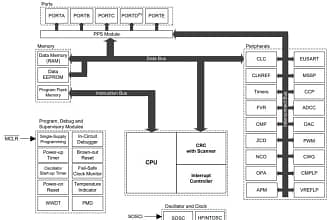Innovate UK has awarded TreQ and a consortium of partners including Rigetti, Oxford Ionics, Q-CTRL, and Qruise, £1.65 million to develop an Open Architecture Quantum (OAQ) Testbed.
The grant is part of a £121 million investment in quantum technology under the Quantum Missions Pilot, which aims to break down technological barriers to commercialising quantum technologies in line with the UK’s National Quantum Strategy.

The consortium will create a modular and extensible system for integrating and evaluating both quantum software and hardware components, including processors.
“The OAQ Testbed pushes the bounds of quantum computing systems,” commented Dr Joseph Rahamim, Director of Systems Engineering at TreQ, who is leading the project. “By integrating software and hardware built by several companies, we expand the focus beyond processors to the systems engineering required to develop the supply chain, engage more innovators, and accelerate development.”
The consortium will build a versatile system that supports eight different configurations by combining two quantum processors, two control systems, and two quantum software stacks.
Users can switch between component configurations in seconds, allowing software testing in multiple contexts. The OAQ Testbed will also offer the potential for upgrades and extensions at every layer of the stack.
This approach maximises capital efficiency, ensuring the investment supports long-term advancements in a rapidly evolving field.
The OAQ Testbed will incorporate products from consortium members as well as additional suppliers, including:
-
Advanced calibration tools provided by Q-CTRL & Qruise
-
Control hardware from Quantum Machines & QBlox
-
Rigetti’s Novera™ 9-qubit quantum processing unit (QPU) and a QuantWare 5-qubit Soprano QPU
TreQ will design, build, and operate the testbed in its facility in Milton Park, Oxfordshire.
The project will also deliver an open specification for low-level quantum workflows, creating a common interface between quantum software and hardware, including different processor technologies, both beginning with superconducting and Oxford Ionics’s trapped ion qubits.
This interface will enable modular compilation and execution of quantum programmes, increasing supply-chain cohesion and accelerating collaboration across the industry..




